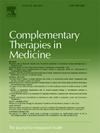Is integrating acupuncture into the management of attention-deficit/hyperactivity disorder among children and adolescents now opportune and evidence-based? A systematic review with meta-analysis and trial sequential analysis
IF 3.5
3区 医学
Q1 INTEGRATIVE & COMPLEMENTARY MEDICINE
引用次数: 0
Abstract
Background and aim
The use of acupuncture is becoming increasingly popular in the management of attention-deficit/hyperactivity disorder (ADHD). This systematic review consolidates evidence on acupuncture’s efficacy and safety for treating ADHD in children and adolescents.
Methods
Controlled clinical trials assessing acupuncture against waitlist-control, placebo or active controls, or as an adjunct treatment were systematically searched across seven databases from inception to November 2024. Cochrane criteria were adhered to.
Results
We reviewed 25 studies with 1758 participants. None compared acupuncture to placebo or behavioral therapy. Subdomain analysis of the Conners’ Parent Rating Scale indicated that acupuncture and Methylphenidate had comparable effects on Conduct Problems [SMD = 0.03, 95 %CI (-0.93, 0.99), p = 0.95] and Learning Problems [SMD = 0.29, 95 %CI (-0.38, 0.97), p = 0.39], but acupuncture was more effective in controlling Impulsive/Hyperactive symptoms [SMD = -1.71, 95 %CI (-2.08, −1.35), p < 0.01]. Insufficient sample size prevented confirmation of potential false positives. Acupuncture was safer and reduced Methylphenidate-related side-effects, including appetite loss, sleep disturbances, dry mouth, abdominal pain, and constipation. Acupuncture combined with behavioral therapy outperformed behavioral therapy alone in improving Psychosomatic symptoms [SMD = -0.88, 95 %CI (-1.54, −0.23), p < 0.01]. In the Integrated Visual and Auditory Continuous Performance Test, ADHD patients receiving acupuncture alongside conventional care performed better than those receiving conventional care alone. Nevertheless, the methodological quality of the included trials was very low to low, with significant bias risk, and 88 % lacked follow-up.
Conclusions
Acupuncture may offer an alternative for children and adolescents with ADHD who are intolerant to medication (primarily Methylphenidate). When combined with medication or behavioral therapy, it appeared more effective in ameliorating hyperactivity/impulsivity, inattention and conduct problems than standard treatments alone. It is also safe and well-tolerated. However, the supporting evidence is of low quality, and well-designed randomized controlled trials are needed. Thus, it is premature to recommend acupuncture as an alternative or adjunctive therapy for ADHD management.
将针灸纳入儿童和青少年注意力缺陷/多动障碍的管理中现在是合适的和有证据的吗?荟萃分析和试验序列分析的系统综述。
背景和目的:针灸在治疗注意力缺陷/多动障碍(ADHD)中越来越受欢迎。本系统综述巩固了针灸治疗儿童和青少年多动症的有效性和安全性的证据。方法:系统检索7个数据库从建立到2024年11月的对照临床试验,评估针灸与候补对照、安慰剂或主动对照,或作为辅助治疗。遵循Cochrane标准。结果:我们回顾了25项研究,1758名参与者。没有人将针灸与安慰剂或行为疗法进行比较。Conners' Parent Rating Scale的子域分析显示,针刺与哌甲酯在行为问题(SMD = 0.03, 95%CI (-0.93, 0.99), p = 0.95)和学习问题(SMD = 0.29, 95%CI (-0.38, 0.97), p = 0.39)方面的效果相当,但针刺在控制冲动/多动症状方面更有效[SMD = -1.71, 95%CI (-2.08, -1.35), p < 0.01]。样本量不足阻止了潜在误报的确认。针灸更安全,减少了与哌甲酯相关的副作用,包括食欲减退、睡眠障碍、口干、腹痛和便秘。针刺联合行为治疗改善心身症状的效果优于单独行为治疗[SMD = -0.88, 95%CI (-1.54, -0.23), p < 0.01]。在综合视觉和听觉连续表现测试中,接受针灸和传统护理的ADHD患者比单独接受传统护理的患者表现更好。然而,纳入的试验的方法学质量非常低至低,具有显著的偏倚风险,88%缺乏随访。结论:针灸可能为对药物(主要是哌甲酯)不耐受的ADHD儿童和青少年提供另一种选择。当与药物或行为疗法相结合时,它在改善多动/冲动、注意力不集中和行为问题方面似乎比单独的标准治疗更有效。它也是安全且耐受性良好的。然而,支持证据的质量较低,需要精心设计的随机对照试验。因此,推荐针灸作为ADHD治疗的替代或辅助疗法还为时过早。
本文章由计算机程序翻译,如有差异,请以英文原文为准。
求助全文
约1分钟内获得全文
求助全文
来源期刊

Complementary therapies in medicine
医学-全科医学与补充医学
CiteScore
8.60
自引率
2.80%
发文量
101
审稿时长
112 days
期刊介绍:
Complementary Therapies in Medicine is an international, peer-reviewed journal that has considerable appeal to anyone who seeks objective and critical information on complementary therapies or who wishes to deepen their understanding of these approaches. It will be of particular interest to healthcare practitioners including family practitioners, complementary therapists, nurses, and physiotherapists; to academics including social scientists and CAM researchers; to healthcare managers; and to patients. Complementary Therapies in Medicine aims to publish valid, relevant and rigorous research and serious discussion articles with the main purpose of improving healthcare.
 求助内容:
求助内容: 应助结果提醒方式:
应助结果提醒方式:


